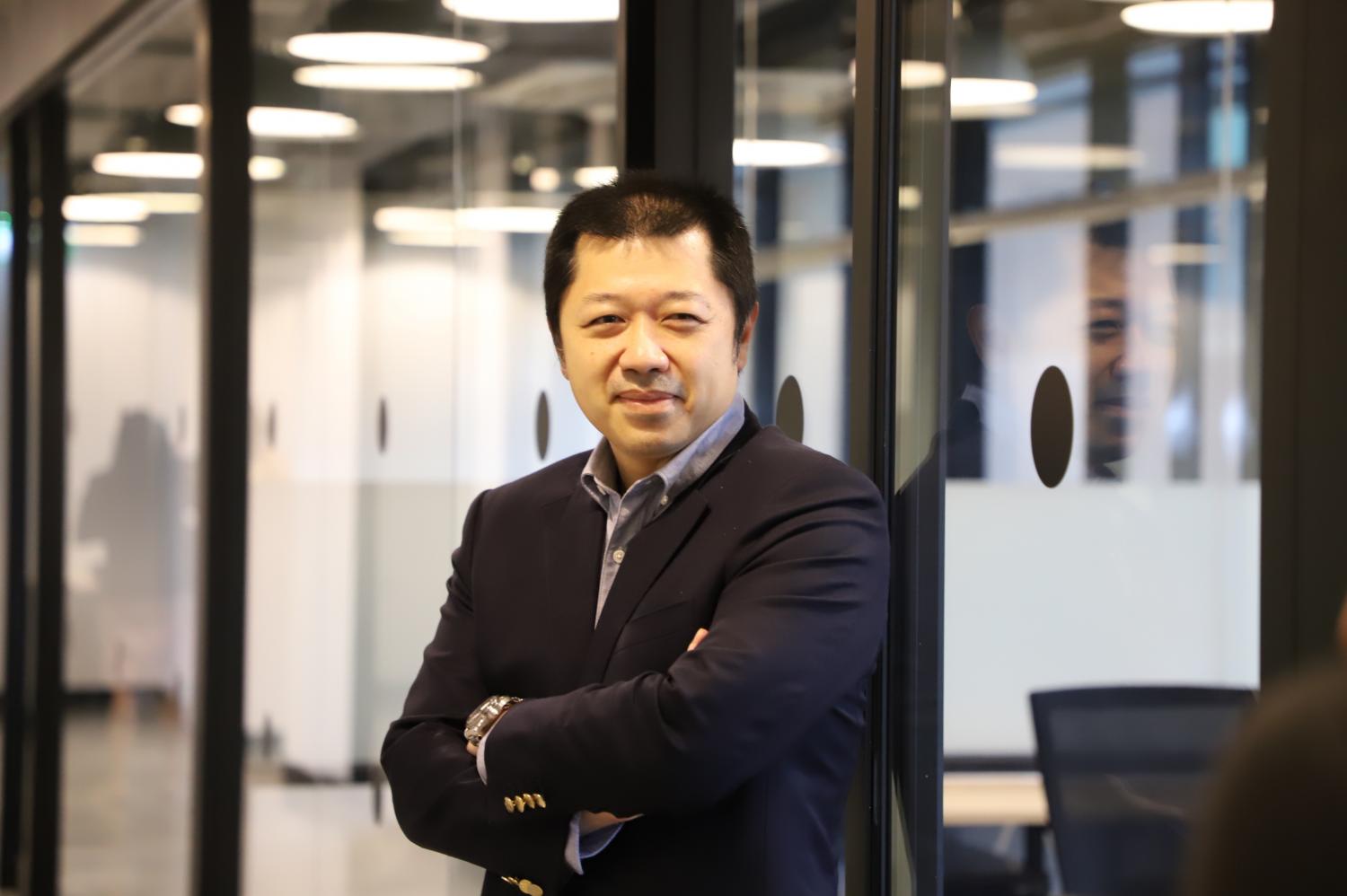
The prolonged Covid-19 outbreak has caused widespread suffering as countries grapple with simultaneous health and socio-economic crises on an unprecedented scale. At a time of extreme global fragility, many businesses also remain unsure about how they can recover from the worst hardships they have ever experienced.
The International Monetary Fund (IMF) now estimates that the "Great Lockdown" recession could shrink the global economy by 4.9% this year while pushing another 49 million people into extreme poverty, further worsening inequality.
"Covid-19 has exposed the vulnerabilities of a global market that has allowed social inequalities to widen for two-thirds of the global population," said Lise Kingo, executive director of the United Nations Global Compact.
The impact has been especially hard on those employed in the informal sector, who amount to about half of all workers worldwide, most of whom have no social protection, she added.
"1.6 billion people are facing the risk of seeing their livelihoods disappear and close to 50 million are being thrown back into extreme poverty. The pandemic is the wakeup call for all stakeholders to rebuild a better society," she said at the virtual UN Global Compact Leaders' Summit recently.
A global movement of businesses and related stakeholders, which the Compact was established to foster, is needed to unite at this unprecedented time to rebuild societies and help the most vulnerable groups, especially those who lack access to health services.
"Post Covid-19, stakeholders are impatient and expect leaders to correct these wrongs," she said.
The summit gathered leading voices from business, government, the UN, civil society and academia to discuss how to rebuild more inclusive economies and societies. They aim to set a course for "a socially just, low-carbon and climate-resilient world, where no one is left behind" as well as ensure the UN Sustainable Development Goals (SDG) are all met by 2030 as planned.
The Global Compact, initiated in 2000 by former UN secretary-general Kofi Annan, is the world's largest corporate sustainability initiative, with about 10,000 business participants. It focuses on helping business to prepare for and adapt to the transformations needed to achieve the 2030 agenda and spread corporate sustainability around the world.
The Compact encourages participants to follow its 10 principles, stressing that corporate sustainability starts with a company's value system and a principles-based approach to doing business.
The Covid-19 pandemic is the "greatest test that we have faced together since the formation of the United Nations", UN Secretary-General António Guterres told participants at the summit.
Covid-19, he said, had exposed the fragile nature of progress toward meeting the SDGs. The failure to create a more socially just world before the pandemic struck has worsened the current crisis and will hamper the ability to recover faster. Mr Guterres said now was not the time to return to business-as-usual but to build more sustainable and inclusive societies to brace for possible shocks in the future.
A report released at the close of the summit, "Uniting Business in the Decade of Action", suggests that while the focus now is on dealing with Covid-19, companies should not abandon the SDGs, as the world needs more sustainability, not less.

Supachai Chearavanont, CEO and executive chairman of Charoen Pokphand (CP) Group and chairman of UN Global Compact Thailand Photo: Digital Council of Thailand (DCT)
VULNERABLE WORKFORCE
As the pandemic has exposed how vulnerable many workers are, the Global Compact urges a sustainable recovery in which businesses strive to ensure access to decent work, living wages and social protection in the global supply chain.
The pandemic hit every sector but the alarming reality is that vulnerable groups including informal workers, young people, women, people with disabilities, refugees and migrants are the most affected, as highlighted in the International Labour Organization (ILO) report "The World of Work and Covid-19".
The loss of working hours, predominantly in developing countries, in the second quarter reached 14%, equivalent to 400 million full-time jobs.
Shorter working hours and enforced temporary leave were the main features of recent cutbacks. Women have been disproportionately affected, the report said, which could set back progress in many areas such as inequalities in the labour market.
The ILO predicts the recovery of the labour market in the second half of this year will be uncertain and incomplete. In its baseline scenario, it sees a 4.9% loss of working hours, or 140 million full-time jobs, in the fourth quarter.
However, if the world experiences a resurgence of Covid-19 cases, the loss could be as high as 11.9% or 340 million full-time jobs.
To cope with labour market disruptions, timely and large-scale support for businesses and workers around the world is required, the ILO said. Authorities must also ensure that vulnerable and hard-hit groups are helped, in order to create fairer labour market outcomes.
The world will likely emerge from the pandemic with higher levels of unemployment, inequality, poverty, debt and political frustration. Therefore, governments should make "building back better" a fundamental tenet of their recovery plans as opposed to building back to where we previously were, it said.
The ILO stresses the importance of a human-centred agenda involving investment in people's capabilities, the institutions of work, and the sustainable jobs of the future.
BUSINESS COMMITMENT
Ms Kingo acknowledged that the pandemic was affecting the private sector's commitment to realising the UN vision of a future that protects people and the planet. As things stand, the world is not on track to meet the Agenda 2030 deadline, she said.
Even though progress on the SDGs has been made in some areas such as reducing extreme poverty and child mortality, global warming and overconsumption are depleting natural resources and threatening the wellbeing of millions. The impact of Covid-19 is also bringing deep-seated inequality to the surface, while exposing structural racism in some societies.
The way forward is not just to zoom in on the financial bottom line but to "become more responsible and anchor the 10 principles and sustainability goals in their business", she said.
Currently, responsible business practices are not keeping pace with policy commitments and action lags in some cases. "Companies participating in the Global Compact need to move beyond policy and take action that will underpin a better understanding of the impacts and lead to performance improvements," she said.
To ensure a recovery that secures wellbeing for all, Ms Kingo urged leaders to use their power and act as social activists. This, she said, could influence public policy makers to start prioritising sustainability and putting people first.
While businesses need to play a role in addressing the social impacts of Covid-19, they also need to remain aware of their responsibilities as partners in efforts to build a sustainable future.
"Don't underestimate the power of your own example, your voice, your organisational footprint in the world," she told summit participants. "You have the power to bolster the resolve of policy makers to prioritise sustainable development."
The Danish executive urged companies to ramp up action related to the SDGs, saying that with just 4,000 days left to reach the goals, policy commitment alone is not enough. It should be translated to actions that can lead to actual performance improvements.
WAYS FORWARD
Covid-19 is a reminder that we need to live sustainably and responsibly, and deal with the wellbeing and health aspects of how we live together in a society, according to Suphachai Chearavanont, who chairs the UN Global Compact Thailand.
In the longer term, the CEO and executive chairman of Charoen Pokphand (CP) Group said, the impact of climate change poses a much greater threat to the continued existence of mankind.
In the near term, Mr Suphachai believes it's a priority for employers to do everything in their power to protect jobs.
"We have some 350,000 workers, and we told them that there would be no layoffs," he said. "In fact, we are hiring 20,000 delivery staff. This also helps us to ensure business continuity."
In his view, it is part of the responsibility of the private sector to not create more burdens for the public and the government.
"Before we cut headcount, we really need to look at other ways to cut costs, and weather the storm. There are many things that can be done before laying off people, even without government incentives and support. We need to take a long-term view, assess how long this period of uncertainty will last, and look at what we can do."
Even though the crisis is unprecedented, Mr Suphachai said it also would help business to transform, and come back better and stronger. Businesses can train their leaders to be more innovative and make more sacrifices when needed.
"Leaders and managers can show that it is possible to maintain jobs and take care of employees, and that this is a perfect time to change the culture, move out of our comfort zones, and open up for positive change."
Mr Suphachai said the world should not lose sight of the fact that the virus will eventually go away. The main factor that would lead to a new Great Depression, he said, would be people in business losing confidence. Therefore, to shelter the economy from collapsing, leaders should plan their business "the same as before but be more cautious".
One major concern that has arisen during the pandemic, however, is the loss of momentum in the fight against climate change. Scarce resources are now being directed elsewhere to overcome short-term economic shocks. A worldwide boom in home deliveries, meanwhile, has led to a fresh spike in the use of plastic and other disposable packaging.
Even prior the pandemic, the effort was already lagging as funding was declining, said Mark Carney, the UN Special Envoy on Climate Action and Climate Finance.
"[The endeavour] needs full resources from the private and financial sector," said the former Bank of England governor. "It needs a systemic change in business models and a whole-economy transition to achieve net-zero emissions.
"The tools and frameworks are needed to take climate change into account in every financial decision because climate risk is investment risk."
For companies to recuperate after Covid-19 in the face of uncertainty, the consultancy McKinsey & Company suggests that instead of waiting to go back to normal, companies should develop a "return muscle". This describes an enterprise-wide ability to absorb uncertainty and incorporate lessons learned during the crisis into their business models quickly.
In the next two years, McKinsey said, leaders will need to rewire their organisations for speed. Adapting to the changing landscape requires three separate capabilities: strengthening the speed and execution discipline used for the last 60 days; increasing that pace and quality of skill-building and scaling new working models; and developing the ability to handle uncertainty through real-time microdata monitoring and testing operating plans.
According to a recent survey by McKinsey, even though the outlook for the global economy is grim, respondents are starting to regain optimism. Still, 52% of executives said their national economies are doing substantially worse, up from 10% in March. But the proportion of executives expecting profits to rise within six months also rose by 4 percentage points.
As well, leaders in retail, high-tech and telecoms are also increasingly optimistic about the return of customer demand, the survey showed.
